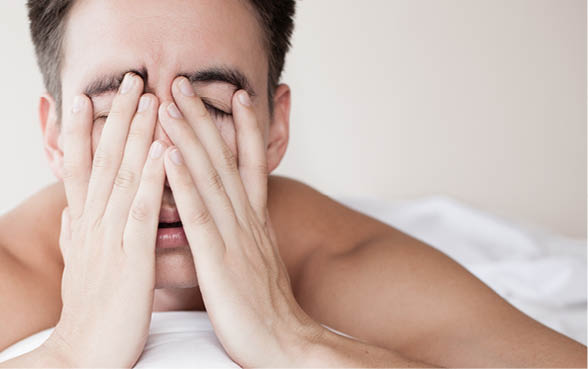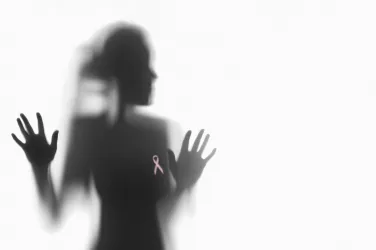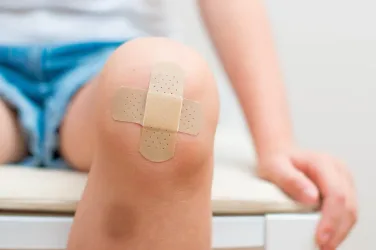
Do you feel like the world is speeding up while you are slowing down? Do you have trouble concentrating on conversations or keeping your mind on work? Have you caught yourself dozing off during the day or, more ominously, at the wheel while driving? Does your spouse complain of your snoring keeping them awake? All of those are signs of a condition known as “sleep apnea,” a condition that affects almost 45 million Americans.
“New research has helped unlock why sleep is so important that all creatures sleep, even at the expense of possibly becoming prey,” said Margaret Mike, M.D., a sleep medicine specialist at Margaret E. Mike, M.D., Sleep & Wake Center, a Texas Health Physicians Group practice serving patients across North Texas. “It is during sleep that the brain cells get rid of the metabolic garbage and toxins that build up as a result of being such a high-energy user. Without adequate sleep, and adequate clearance, these proteins can contribute to the development of Alzheimer’s disease and other neurologic disorders.”
Sleep Apnea Defined
The Greek word “apnea” literally means “without breath.” The American Sleep Apnea Association defines the condition as “an involuntary cessation of breathing that occurs while the patient is asleep” and breaks it down into three types of sleep apnea: obstructive, central and mixed. Of the three, obstructive sleep apnea, often called OSA for short, is the most common. Despite the difference in the root cause of each type, in all three, people with untreated sleep apnea stop breathing repeatedly during their sleep, sometimes hundreds of times during the night and often for a minute or longer. In most cases the sleeper is unaware of these breath stoppages because they don’t trigger a full awakening.

“Sleep loss can mimic and magnify the effects of alcohol intoxication. If you haven’t gotten enough sleep during the week, one drink at a Friday happy hour can impair your thinking and reactions to a similar level as two drinks, and so on,” said Dr. Mike.
But sleep apnea is a serious condition. Left untreated, it can have serious and life-shortening consequences such as high blood pressure, heart disease, stroke, automobile accidents caused by falling asleep at the wheel, diabetes, depression and other ailments.
“Sleep apnea is a silent epidemic that few people know about and many people have,” says Plano Dentist, Dr. Marc Whitmore. “In my dental practice we are trained to screen for sleep apnea and I would estimate about one-third of the adults we see suffer from some from of sleep apnea.”
Whitmore says that while certain health conditions increase your chances of having sleep apnea, he continues to meet patients who do not fit the stereo-typical sleep apnea diagnosee.
“Last week I met a gentleman in his thirties who recently experienced a heart attack. He looked perfectly healthy, but when we screened him for symptoms he had several sleep apnea indicators. Without treatment for sleep apnea, possibly using something as simple as an oral appliance (like a retainer) he could stop breathing in his sleep. This could trigger a heart attack leading to death. It’s that serious.
“Busy people often sacrifice sleep in place of work, family, hobbies or social life, but feeling tired should never be considered normal,” said Jeffrey Phillips, M.D., an internist at Texas Internal Medicine Associates, a Texas Health Physicians Group practice in Dallas. “The effects of sleep deprivation can include memory loss, lack of sex drive, trouble regulating emotions and failure to adequately complete day-to-day tasks. Lack of sleep affects the prefrontal cortex of the brain, which controls innovation, self-control and creativity. Less sleep can lessen your concentration and focus, and make it more difficult for that individual to avoid distractions.”
The ASAA says sleep apnea is seen more frequently among men than among women and more often in men of African-American or Hispanic descent. A major symptom is extremely loud snoring, sometimes so loud that bed partners find it intolerable. Other indications that sleep apnea may be a problem are:
- Obesity
- Persistent daytime sleepiness
- Bouts of awakening out of breath during the night
- Frequently waking in the morning with a dry mouth or a headache.
None of these symptoms are always present. The American Sleep Apnea Association offers a self-test at SleepApnea.org to determine whether you need to speak to your doctor about scheduling a full sleep study to determine whether you suffer with sleep apnea and how severe it is. From there, your doctor may prescribe a CPAP (continuous positive airway pressure), BiPAP (bilevel positive airway pressure), VPAP (variable positive airway pressure) or other device, all of which work by supplying pressurized air that flows continuously or intermittently into your throat preventing your airway from collapsing.
Not every sleep apnea patient can tolerate a positive airway pressure machine because the machines can be noisy and require a mask. More alternative options are becoming available.
“For patients with mild to moderate sleep apnea, and for those with CPAP intolerance, we use a custom-made oral appliance similar to a retainer to keep the airway open during sleep,” says Dr. Whitmore. “The best thing to do is talk with a dentist or medical professional to find out of you have sleep apnea, then explore your options because there are more now than there used to be.”
To Nap or Not to Nap
Everybody likes a good nap. But the National Heart, Lung and Blood Institute warns that, though napping during the day may provide a boost in alertness and performance, if you have trouble falling asleep at night, you should limit your naps or take them earlier in the afternoon. And adults should nap no more than 20 minutes on any given day.
Whether or not you suffer from sleep apnea, there are steps you can take to improve your sleep habits. First, make sure that you allow yourself enough time to sleep. Sleep is often the first thing busy people squeeze out of their schedules.
Dr. Phillips recommends these steps to improve the quality and quantity of your sleep.
- Preparations for a good night’s rest include taking a hot shower, dimming the bedroom lights and lowering the temperature in the bedroom.
- Make your bedroom a dedicated sleeping zone to better help mentally prepare you for sleep as soon as you enter the room.
- It’s important to avoid caffeinated beverages at least eight to 10 hours before sleeping and also limit eating and drinking at least two hours beforehand. Alcohol may help you fall asleep more easily, but it will make sleep less restful throughout the night. This is especially true for those who suffer from obstructive sleep apnea since alcohol can worsen symptoms.
- Regular exercise increases blood flow and oxygen to the brain.
- If time, take power naps.
- Eat healthy foods and limit caffeine and sugar intake to promote restorative sleep.
- Get enough sunlight during the day. More daylight increases your sleep quality. If you work indoors, go outside during work breaks to ensure your body gets the daylight it needs.
- Consider unplugging from technology before bed. At least 95 percent of people use some kind of electronic device – TV, a computer, a phone or a tablet – within an hour of bedtime, according to the National Sleep Foundation. Studies have shown that even our small electronic devices give off sufficient light to trick our brains and promote wakefulness.
Get Moving
There’s also a connection between how much exercise we get and how satisfyingly we sleep. One dynamic study performed by the Department of Neurobiology and Physiology at Northwestern University determined that “millions of adults could likely improve their quality of sleep, vitality and mood with regular aerobic exercise.” The study which examined the effect of aerobic exercise on insomnia in middle-aged and older adults, began with sedentary adults, mostly women aged 55 years and older, who had a hard time falling asleep or staying asleep and also reported impaired daytime functioning.
Participants were broken into two groups: one that exercised for 30-40 minutes four times a week for 16 weeks. The other didn’t exert themselves physically but mentally, taking part in recreational or educational activities, such as attending a cooking class or listening to a museum lecture, also for 16 weeks. The results? Researchers say the participants who exercised reported that their sleep quality improved, raising their diagnosis from poor to good sleeper. They also reported fewer depressive symptoms, more vitality, and less sleepiness in the daytime.
Doctors recommend seven to eight hours of solid, uninterrupted sleep each night to keep your body, mind and spirit healthy. “It’s important to have a discussion with loved ones about the importance of sleep so that everyone, kids and parents, can get the healthy rest they need,” said Dr. Phillips, “The hours you spend sleeping are an investment in health and mental sharpness and not wasted time. Your brain – and the people around you – will thank you.”
Chicken or the Egg?
Medical science has long recognized a connection between sleep apnea and obesity. But is sleep causing obesity or is obesity leading to sleep apnea? The National Sleep Foundation says both are true. “Weight gain leads to compromised respiratory function when an individual’s trunk and neck area increase from weight gain. These interacting problems of weight gain and sleep apnea make it difficult to help oneself off the slippery slope of health problems. From a behavioral perspective, those suffering from sleep apnea may be less motivated to diet or exercise – daytime sleepiness lowers their energy levels and makes it difficult to commit to an exercise and/or diet.”
Find out more at SleepFoundation.org.
By Mimi Greenwood Knight









